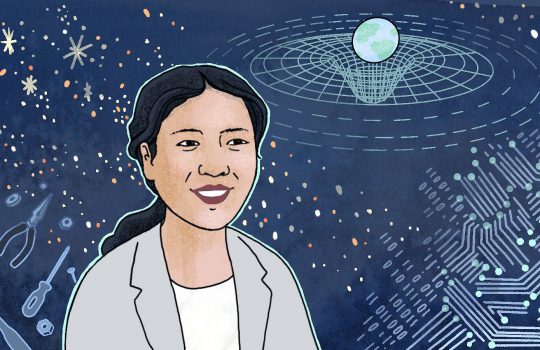We don’t know how fast the universe is expanding, and that’s a problem
From New Scientist, July 15, 2020: Two sets of measurements to estimate the rate of expansion of the universe — described by the Hubble constant — conflict with one another, which may be a sign that our basic understanding of the cosmos is wrong. Two new attempts by astronomers to solve this problem have complicated things further. Fermilab scientist Antonella Palmese and her colleagues have used measurements of gravitational waves to calculate an independent value of the Hubble constant.



